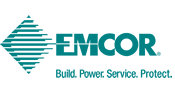Malaysian Resources Corporation Bhd
KLSE:MRCB

Utilize notes to systematically review your investment decisions. By reflecting on past outcomes, you can discern effective strategies and identify those that underperformed. This continuous feedback loop enables you to adapt and refine your approach, optimizing for future success.
Each note serves as a learning point, offering insights into your decision-making processes. Over time, you'll accumulate a personalized database of knowledge, enhancing your ability to make informed decisions quickly and effectively.
With a comprehensive record of your investment history at your fingertips, you can compare current opportunities against past experiences. This not only bolsters your confidence but also ensures that each decision is grounded in a well-documented rationale.
Do you really want to delete this note?
This action cannot be undone.

| 52 Week Range |
0.36
0.565
|
| Price Target |
|
We'll email you a reminder when the closing price reaches MYR.
Choose the stock you wish to monitor with a price alert.
This alert will be permanently deleted.
Profitability Summary
Malaysian Resources Corporation Bhd's profitability score is hidden . We take all the information about a company's profitability (such as its margins, capital efficiency, free cash flow generating ability, and more) and consolidate it into one single number - the profitability score. The higher the profitability score, the more profitable the company is.
Profitability Score
We take all the information about a company's profitability (such as its margins, capital efficiency, free cash flow generating ability, and more) and consolidate it into one single number - the profitability score. The higher the profitability score, the more profitable the company is.
We take all the information about a company's profitability (such as its margins, capital efficiency, free cash flow generating ability, and more) and consolidate it into one single number - the profitability score. The higher the profitability score, the more profitable the company is.
Profitability Score
Margins
Earnings Waterfall
Malaysian Resources Corporation Bhd
Margins Comparison
Malaysian Resources Corporation Bhd Competitors
| Country | Company | Market Cap |
Operating Margin |
Net Margin |
||
|---|---|---|---|---|---|---|
| MY |
M
|
Malaysian Resources Corporation Bhd
KLSE:MRCB
|
1.6B MYR |
Loading...
|
Loading...
|
|
| FR |

|
Vinci SA
PAR:DG
|
64.2B EUR |
Loading...
|
Loading...
|
|
| US |

|
Quanta Services Inc
NYSE:PWR
|
69.6B USD |
Loading...
|
Loading...
|
|
| IN |

|
Larsen & Toubro Ltd
NSE:LT
|
5.2T INR |
Loading...
|
Loading...
|
|
| IN |

|
Larsen and Toubro Ltd
F:LTO
|
48.4B EUR |
Loading...
|
Loading...
|
|
| ES |

|
Ferrovial SA
MAD:FER
|
41B EUR |
Loading...
|
Loading...
|
|
| NL |

|
Ferrovial SE
AEX:FER
|
41.1B EUR |
Loading...
|
Loading...
|
|
| US |

|
Comfort Systems USA Inc
NYSE:FIX
|
39.5B USD |
Loading...
|
Loading...
|
|
| DE |
H
|
Hochtief AG
XETRA:HOT
|
26.3B EUR |
Loading...
|
Loading...
|
|
| US |

|
EMCOR Group Inc
NYSE:EME
|
31.3B USD |
Loading...
|
Loading...
|
|
| CN |
C
|
China State Construction Engineering Corp Ltd
SSE:601668
|
212.4B CNY |
Loading...
|
Loading...
|
Return on Capital
Return on Capital Comparison
Malaysian Resources Corporation Bhd Competitors
| Country | Company | Market Cap | ROE | ROA | ROCE | ROIC | ||
|---|---|---|---|---|---|---|---|---|
| MY |
M
|
Malaysian Resources Corporation Bhd
KLSE:MRCB
|
1.6B MYR |
Loading...
|
Loading...
|
Loading...
|
Loading...
|
|
| FR |

|
Vinci SA
PAR:DG
|
64.2B EUR |
Loading...
|
Loading...
|
Loading...
|
Loading...
|
|
| US |

|
Quanta Services Inc
NYSE:PWR
|
69.6B USD |
Loading...
|
Loading...
|
Loading...
|
Loading...
|
|
| IN |

|
Larsen & Toubro Ltd
NSE:LT
|
5.2T INR |
Loading...
|
Loading...
|
Loading...
|
Loading...
|
|
| IN |

|
Larsen and Toubro Ltd
F:LTO
|
48.4B EUR |
Loading...
|
Loading...
|
Loading...
|
Loading...
|
|
| ES |

|
Ferrovial SA
MAD:FER
|
41B EUR |
Loading...
|
Loading...
|
Loading...
|
Loading...
|
|
| NL |

|
Ferrovial SE
AEX:FER
|
41.1B EUR |
Loading...
|
Loading...
|
Loading...
|
Loading...
|
|
| US |

|
Comfort Systems USA Inc
NYSE:FIX
|
39.5B USD |
Loading...
|
Loading...
|
Loading...
|
Loading...
|
|
| DE |
H
|
Hochtief AG
XETRA:HOT
|
26.3B EUR |
Loading...
|
Loading...
|
Loading...
|
Loading...
|
|
| US |

|
EMCOR Group Inc
NYSE:EME
|
31.3B USD |
Loading...
|
Loading...
|
Loading...
|
Loading...
|
|
| CN |
C
|
China State Construction Engineering Corp Ltd
SSE:601668
|
212.4B CNY |
Loading...
|
Loading...
|
Loading...
|
Loading...
|






